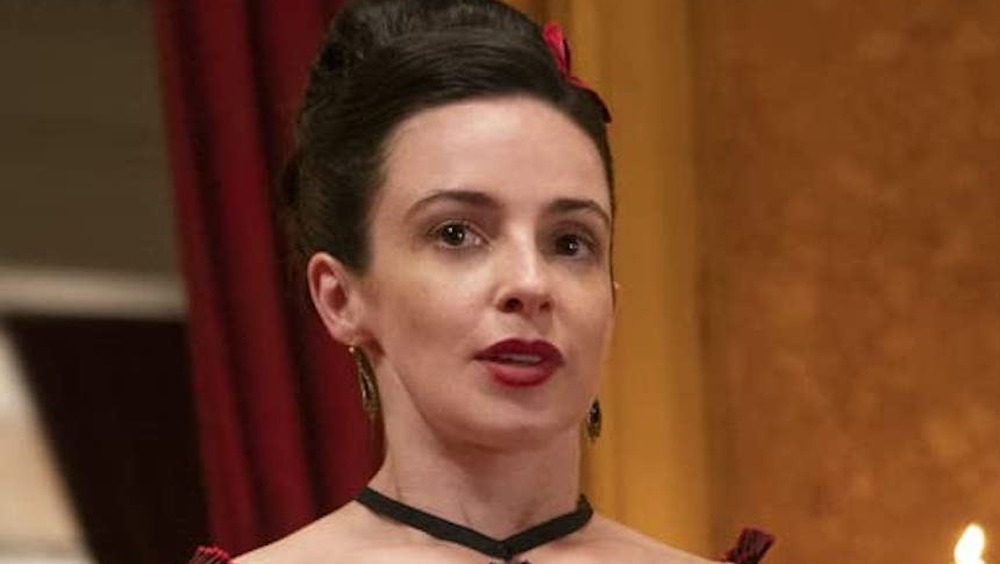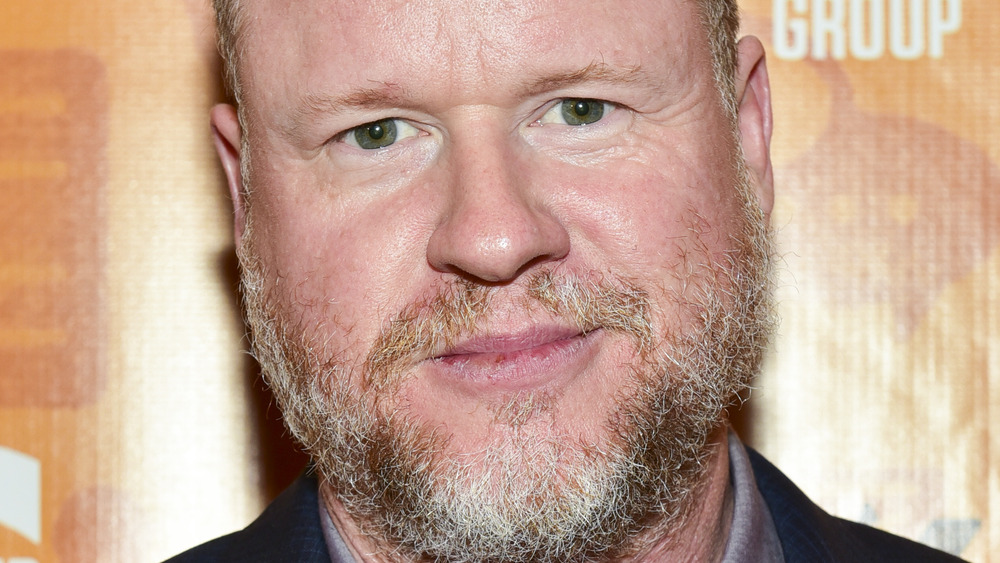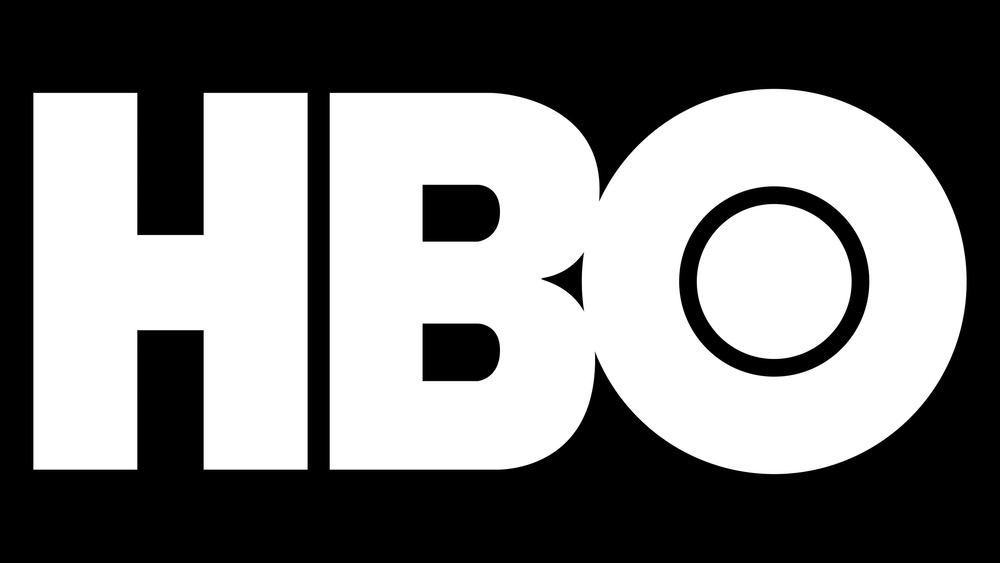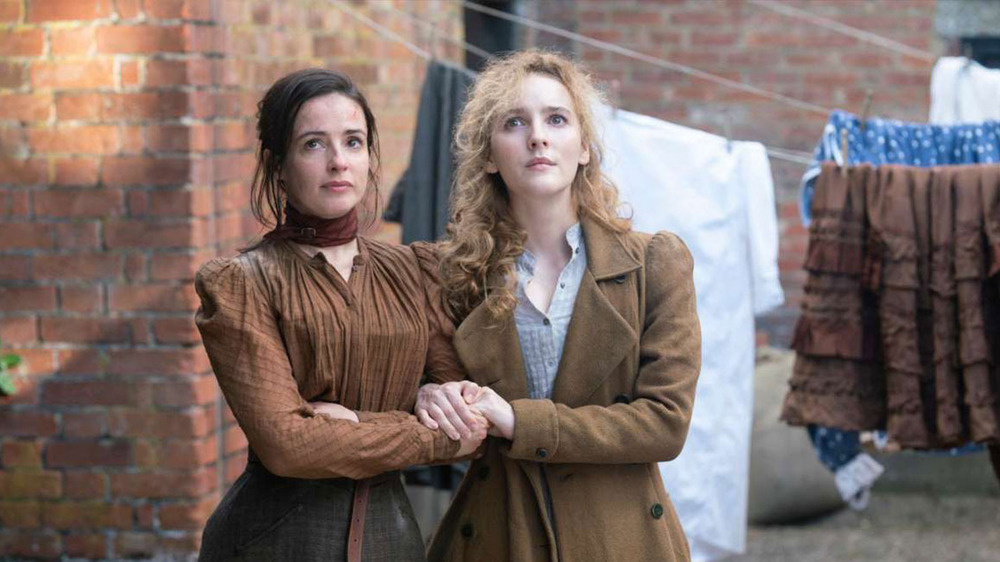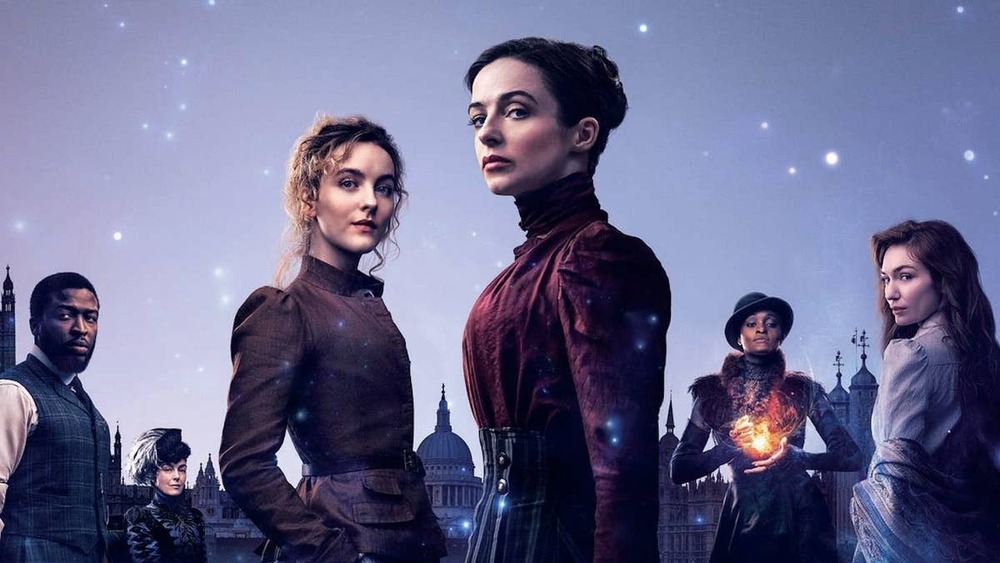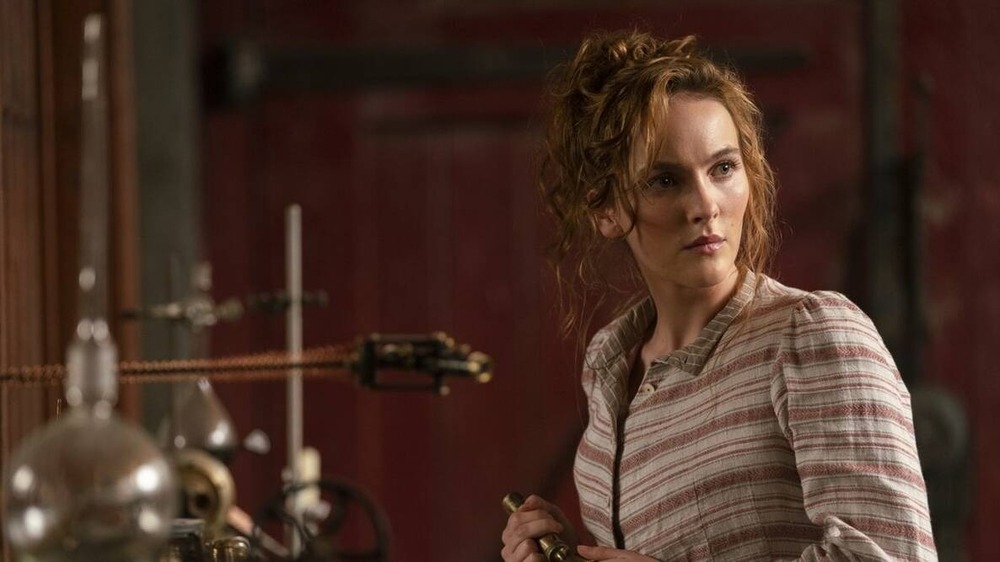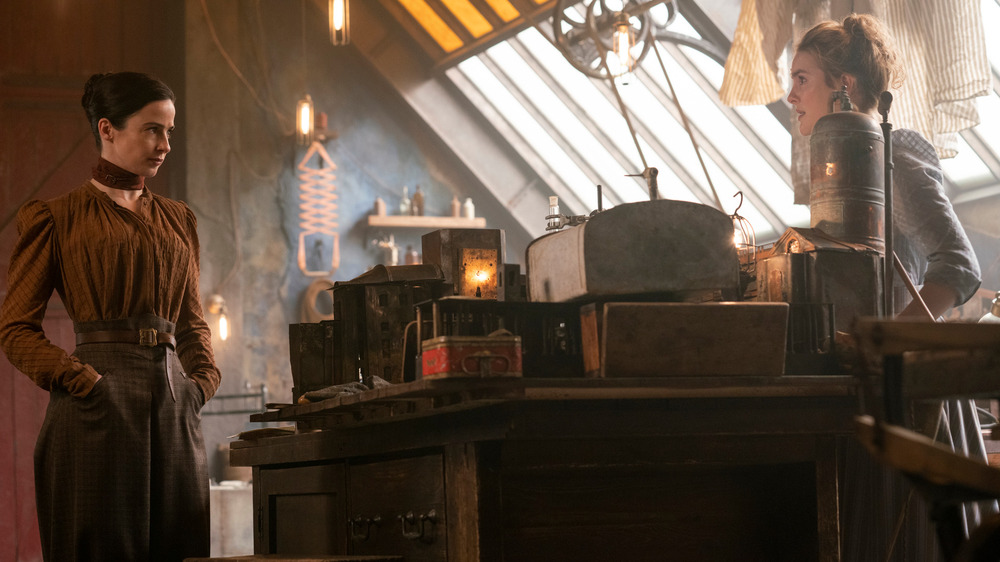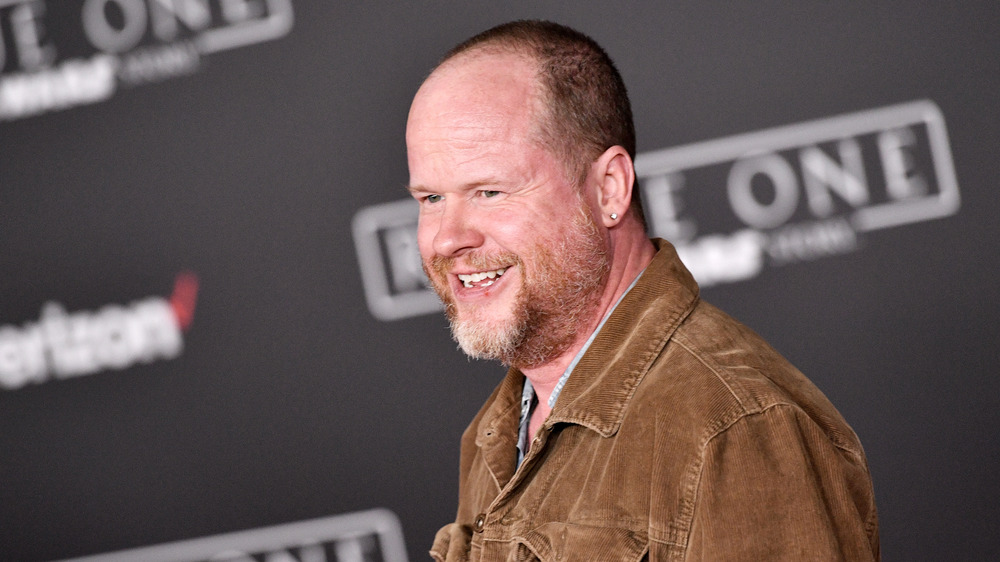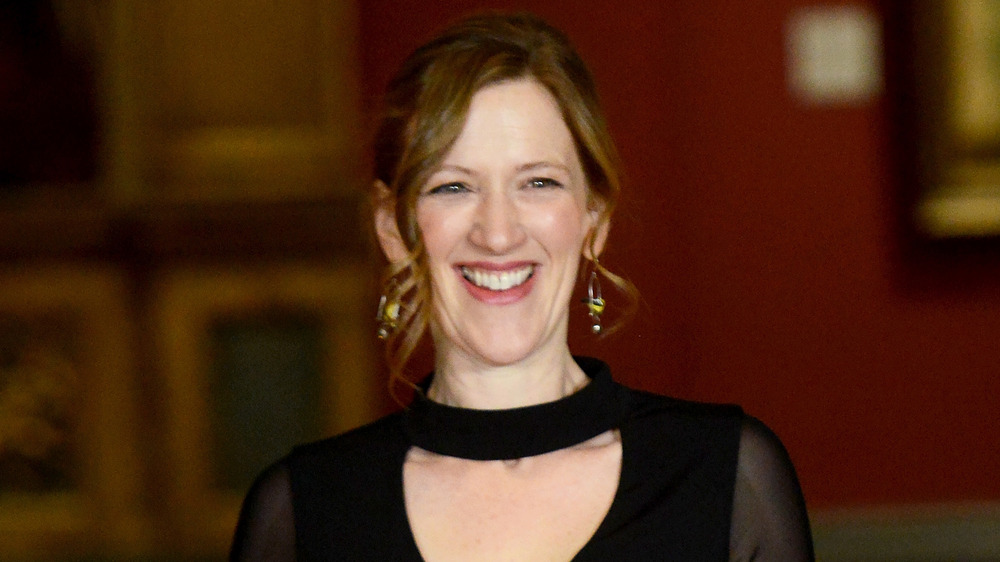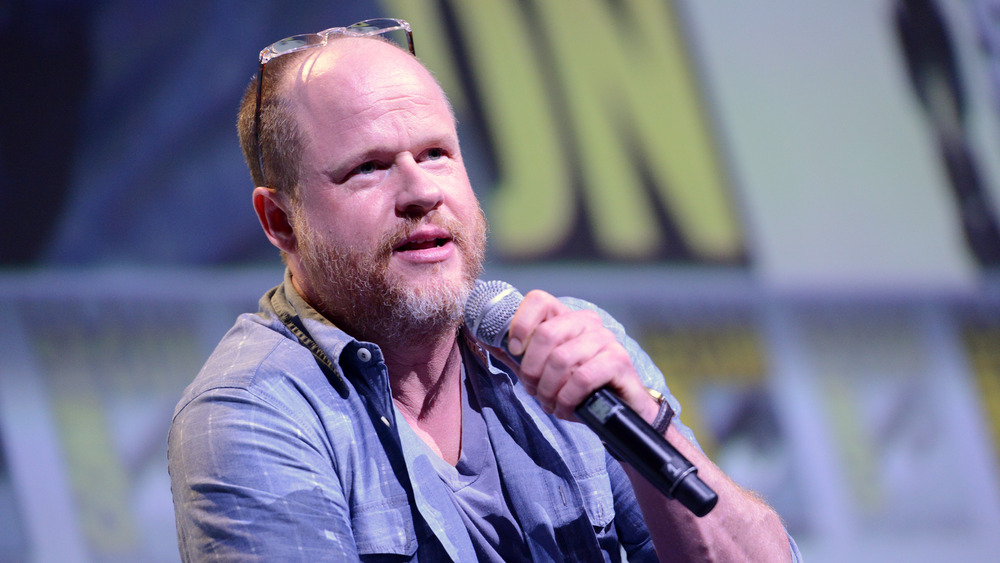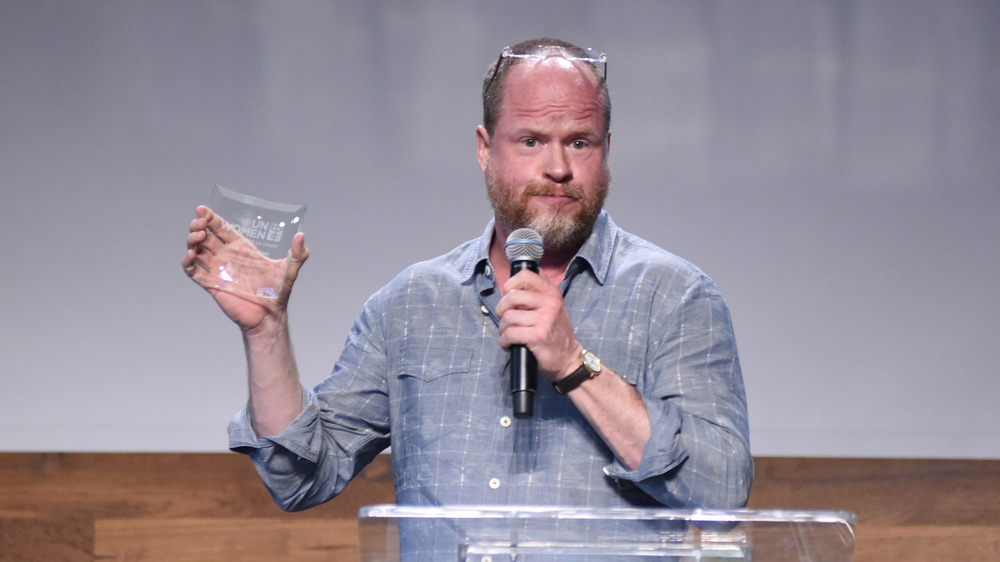The Untold Truth About The Nevers
If you've seen the ads for the new HBO program The Nevers, you likely have a good idea of what the show plans to offer viewers: ladies with an assortment of superpowers, villains to fight against, and an unforgiving "normal" society that looks down upon those who are different. Plus, since it's on HBO, you're bound to get an extra dose of extra-coarse language and violence.
But the newest foray into television from Joss Whedon is more than just what its posters and commercials show off. In fact, getting to the small screen has been a long and winding journey for this production, one that dates back to Whedon's difficulties in securing a project post-Avengers: Age of Ultron and leads all the way up to challenges in filming the program during a worldwide pandemic.
The untold truth of The Nevers is a testament to just how difficult it is to get any TV show off the ground, let alone one beset by extra problems. Here's a closer look at the hidden history of The Nevers.
Joss Whedon's pursuit of a post-Avengers project
After directing back-to-back $1.3+ billion-grossing Avengers movies, Joss Whedon was looking to take on something different. Whedon withdrew his name from consideration for directing Avengers: Infinity War and Avengers: Endgame and then proceeded to bounce from one potential project to another. This included an original horror movie that he announced in October 2016, which was set during World War II. "It's a historical fiction/horror movie about a time when the world was going insane, World War II," Whedon explained. "I got to tell you, I was in Germany and Poland doing research for this movie and I was seeing so many parallels [to the U.S.]." The project never came to fruition, though it's easy to see thematic parallels between that prospective European period piece and what would eventually become The Nevers.
Additionally, Whedon toiled away on film adaptations of DC Comics properties at Warner Bros., which included penning a draft for Batgirl and directing reshoots of Justice League. While Whedon was busy signing onto projects, save for the theatrical cut of Justice League, none of his planned productions ever got off the ground. Batgirl even fizzled out simply because he struggled to crack a story for the crime-fighting hero. Those creative setbacks finally changed once he returned to the domain that first put him on the pop culture radar: television.
HBO beat out Netflix for The Nevers
In the summer of 2018, news broke that Whedon was embarking on his first new non-Marvel TV show in nearly a decade. The project would be The Nevers and it had apparently found a home: HBO had managed to snag the program. A prestige cable network was a unique home for Whedon, whose TV shows had largely stayed on major broadcast networks like Fox or ABC. In the past, this had led to problems, such as Fox choosing to air episodes of Firefly out of order. Such strange decisions are less likely to happen at a prestige pay-TV channel like HBO, which tends to take a more delicate approach to its shows.
With his clout from the success of Avengers, Whedon didn't just garner interest from Fox and CBS. Suddenly everybody was interested in The Nevers. Before HBO claimed it, others bid on the show, including Netflix. In the end, the channel behind Game of Thrones claimed this program.
Whedon expressed excitement that HBO was his new creative home. "I honestly couldn't be more excited," Whedon stated. "The Nevers is maybe the most ambitious narrative I've created, and I can't imagine a better home for it than HBO. Not only are they the masters of cinematic long-form, but their instant understanding of my odd, intimate epic was as emotional as it was incisive."
The process of casting The Nevers
All of Joss Whedon's most famous TV programs get a lot of mileage out of their memorable casts. The rapport between the central leads of Firefly, for instance, helped to solidify Nathan Fillion and Alan Tudyk as actors of note. This meant that all eyes were on the ensemble cast of Whedon's newest foray into TV, The Nevers. Making this particular casting process extra interesting was that most of the characters were women and British.
The cast finally began to come together in the spring of 2019 when Laura Donnelly was hired for the lead role. Previously known for her supporting work in shows like The Fall and Britannia, Donnelly enjoyed a breakthrough role in The Nevers. "Laura Donnelly has charisma, wisdom and an anarchic precision that not only captures Amalia but defines her," Whedon said about his newest leading lady. "She's fierce and she's funny — and I need both for the journey ahead."
From there, the other central roles of the series came into focus. Olivia Williams, James Norton, Tom Riley, Ann Skelly, and Amy Manson were added to the cast at the end of the summer of 2019 as filming got underway. A further six cast members were announced shortly thereafter, completing the cast of The Nevers and setting the show up to begin filming.
Filming across London
Set in London, The Nevers wasn't aiming to recreate this famous location through a bunch of soundstages and green screens. Instead, the program was actually shot in London, with famous backdrops from the city giving the proceedings an extra air of authenticity. This was a city that Whedon was plenty familiar with, having shot a number of sequences for Avengers: Age of Ultron in the Shepperton Studios compound in London. However, that superhero adventure was a globe-trotting adventure that took Whedon across the world, whereas The Nevers would be entirely filmed on location and require an extra level of commitment to one of Europe's best cities.
Not everything was smooth sailing. Due to a rise in the number of productions shooting in London during The Nevers' principal photography, the crew had to get crafty and find unusual spaces, like unused warehouses, to film certain interior scenes. The Nevers maintained its authentic approach to filming even after the COVID-19 pandemic shut down production temporarily. This health crisis only impacted timing. Though the show involves people with magical abilities straight out of an X-Men comic book, incorporating actual London locales imbues The Nevers with a sense of realism.
COVID-19 shutdown
No pop culture property was impervious to the COVID-19 pandemic, which pretty much shut down the entire entertainment industry. After shooting for eight months, The Nevers paused principal photography on its first season in March 2020. Radio silence reigned for months as it was unclear when the program would resume filming its 10-episode first season. Six months ultimately passed before cameras quietly resumed rolling on the show.
In October 2020, actor Nick Frost revealed that The Nevers had managed to continue shooting, though he reflected that the pandemic continued to create uncertainty surrounding the show's production, particularly regarding its release format. "I don't know how HBO [is] gonna drop it," Frost remarked. "I think COVID might have split a big season of 10 into two of five, but that literally changes all the time, so I don't know." The program managed to continue work even after the U.K. government again shut down society in November 2020.
Split into two parts
The Nevers didn't emerge unscathed from the pandemic: It was forced to release its first season in an unusual manner. This collection of 10 episodes was released in two chunks, with six episodes for the first and four for the second. It's an unusual release model for a season of prestige television, with prominent prior examples of this trend only being seen in the final seasons of widely watched dramas like Breaking Bad or Game of Thrones. To go this route with a new show is an incredibly bold move.
HBO content chief Casey Bloys saw this strategy as making lemonade out of lemons in response to the pandemic's challenges. "We knew the original was going to be 10 episodes long," Bloys told TheWrap in November. "We were shut down by the pandemic through episode 5. In September, we got back up to shooting, finished episode 5 and 6. And there was kind of a natural narrative break at six. So that was the thought then was to air six episodes. So at least we had something to put out there for subscribers and fans." This release strategy was meant to ensure that the show didn't remain on a shelf forever.
The loss of Joss
At the end of 2020, just as the first half of season one of The Nevers had wrapped production, Joss Whedon made a bombshell announcement that he'd no longer be a part of the production. His reason for leaving was, per Whedon, due to exhaustion tied into the COVID-19 pandemic. "This year of unprecedented challenges has impacted my life and perspective in ways I could never have imagined," Whedon said. "And while developing and producing The Nevers has been a joyful experience, I realize that the level of commitment required moving forward, combined with the physical challenges of making such a huge show during a global pandemic, is more than I can handle without the work beginning to suffer."
That was all Whedon had to say on the matter. HBO merely said they were excited about seeing The Nevers come to fruition. However, the timing of this departure inspired internet speculation about other motives for Whedon's sudden departure. Four months prior, Ray Fisher accused Whedon of "abusive, unprofessional" behavior on the set of Justice League. Fisher later claimed that Whedon's exit from The Nevers was a direct attempt to escape the backlash against behavioral allegations. Meanwhile, WarnerMedia said in December 2020 that "remedial action" had been taken after investigating Fisher's claims.
It's impossible to know for certain if Whedon's departure was related to Fisher's allegations, but the timing didn't bring much good publicity to The Nevers.
Enter Philippa Goslett
With Joss Whedon gone, The Nevers needed a new creative director. After all, big-budget TV shows don't just make themselves — even ones with only four episodes left to film. For two months after Whedon's departure, speculation was rampant about who'd helm The Nevers. Finally, news broke that Philippa Goslett was taking over as showrunner. Previously, Goslett's creative pursuits had been primarily limited to the world of film, having written the screenplays for such projects as Mary Magdalene and How to Talk to Girls at Parties. With this HBO program, she'll be a showrunner for the very first time.
Interestingly, Goslett's influence on the show won't be felt for a while. The first season of The Nevers has been split into two parts. It's in the latter section of four episodes where Goslett's creative spark will emerge; the initial six episodes were all done under Whedon's watch. There's still no word if the program plans to hew closely to Whedon's original creative vision or if Goslett will incorporate her own interpretation of the world of The Nevers.
The marketing begins without Joss
As The Nevers prepared to begin its marketing, many people questioned how the show would promote itself while confronting the allegations leveled at Joss Whedon. The solution, it turned out, was not to confront those allegations at all. When the first commercials and trailers for The Nevers came out, many aspects of the program — like its ensemble cast, the unique superpowers of its principal characters, and the period setting — were on full display. However, there was nary a mention of Joss Whedon's involvement.
According to Casey Bloys, the decision to not reference Whedon wasn't a response to recent allegations against the filmmaker but rather a way to ensure that The Nevers stood on its own. "We were already planning, as you saw, to not say 'From Joss Whedon' or 'the director of [Avengers].' It hasn't really affected the campaign," Bloys explained. "Yes, you would expect to have that name [in marketing materials], but the show and the creative is going to speak for itself. A marketing campaign can only do so much; the show and the creative have to stand on its own." Whether that rationale is true or not, it's apparent that The Nevers will rely on spectacle and action in its marketing, rather Whedon's name, to get viewers' attention.
The cast's response to Joss
As the publicity tour for The Nevers got underway, a cloud lingered over the entire enterprise. Even as HBO scrubbed his name from the programs trailers and posters, Joss Whedon was still the talk of the town. The cast members spoke about their experiences with Whedon, with the performers largely sharing positive anecdotes about the show's creator. Ann Skelly, for instance, said that "I found [Joss] to be a lovely boss and director. He was very open. I felt he cared a lot for the actors and the crew. It was definitely one of my favorite on-set experiences for sure." These sentiments were further echoed by fellow performer Laura Donnelly, who said she was "gutted" by his departure "because I had a wonderful experience working with him."
Such sentiments are in sharp contrast to the general dialogue about Whedon from veterans of his previous works, particularly women and people of color. There are reports that Whedon exhibited toxic and abusive behavior back during his time on Buffy the Vampire Slayer, which caused a rift between him and leading lady Sarah Michelle Gellar. Meanwhile, Ray Fisher has repeatedly accused Whedon of racially motivated cruelty. The controversy has cast a long shadow over the history of The Nevers.
